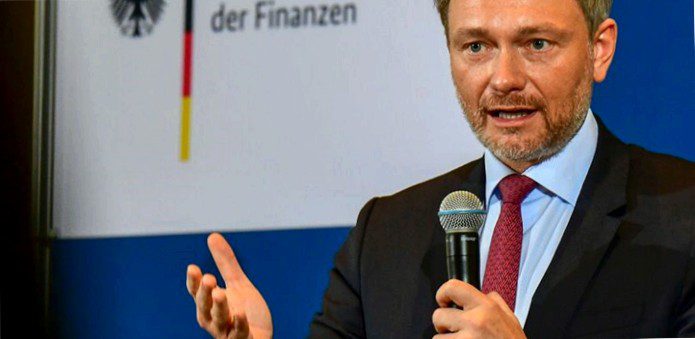Credit gambled away? – What the federal government will spend money on in 2023. With creativity and thanks to a bad economy, Finance Minister Lindner could keep his promise – but there's a problem child.

In the fight against horrendous energy prices and other consequences of Russia's war on Ukraine, the federal government plans to borrow billions again next year. Nevertheless, the debt brake takes effect again for the first time after three years of state of emergency. This was one of the most important election promises of FDP leader Christian Lindner. The fact that he can keep to it is mainly thanks to the poor economy and the creativity of his budget experts.
The federal budget for 2023 is to be passed by the Bundestag on Friday. Until then, members of parliament debate department budget after department budget for three days. There will probably be no more surprises – after all, the budgeters have just agreed on final reallocations in an 18-hour committee meeting.
For the opposition, Lindner has already gambled away a lot of credit as finance minister with his first budget for which he is completely responsible – in other words, he has made himself untrustworthy. Because in addition to the normal budget, there are huge special pots for important investments. In reality, there is not much left over from the promise of a debt brake, criticize the CDU/CSU and the AfD in particular. Lindner always boasts about rejecting many of his minister colleagues' wishes – but he has not shown any real will to save money.
In the budget debate in the Bundestag, Lindner defended his budget against opposition criticism. This budget reflects the "regular political projects" – separately, expenditures to cope with the crises are financed from special funds. Thus the traffic light government shows that it wants to return as fast as possible to the principle to distribute only the money, which was produced before.
The most important key figures of the debt brake budget for 2023:
Volume:
In total, the federal budget has a planned volume of 476.29 billion euros. That's about 20 billion less than this year – but in addition to aid packages because of the Ukraine war, there was also higher spending to cope with the Corona pandemic. As usual, the largest single budget is for the Ministry of Labor, mainly because of large sums for pension insurance. At number two is the defense ministry.
Debt:
After three exceptional years, first because of the pandemic, then because of the war, the debt brake in the Basic Law is to take effect again. But that doesn't mean the federal government can't take out any new loans at all – and that's Lindner's good fortune. Due to the poor economy, debts of around 45.6 billion euros are allowed. The traffic light coalition is making full use of this leeway.
Coping with the consequences of war:
Large items in the new budget have to do with the Ukraine war. Members of parliament have just approved more money for humanitarian aid, reconstruction and the fight against hunger. In addition, there will be, for example, a housing allowance reform worth billions, a subsidy for heating costs for the needy and the 49-euro ticket for local public transport.
Extra help for families:
Families are often particularly affected by high inflation, so they should also be given additional relief. As a result, child benefits will rise to a uniform 250 euros per month per child. This means a plus of 31 euros for the first and second child and a plus of 25 euros per month for the third child.
Tax relief:
The state forgoes tax revenues of 18.6 billion euros by offsetting the effects of inflation in income tax. On the other hand, the basic tax-free amount, i.e. the income up to which no tax has to be paid, is rising. Other benchmarks in the tax scale will also be adjusted. The result: 48 million citizens will have to pay less tax next year. This is to compensate for the fact that they also have less purchasing power due to high inflation.
Where else money comes from:
Not all projects will be paid for out of the normal budget by a long shot. Investments in the Bundeswehr, but above all the planned price brakes for gas and electricity, will be financed by debt from huge special pots. The energy price brakes alone are to cost more than 80 billion euros in the coming year. In addition, 15.2 billion is earmarked for the state's stake in the ailing gas importer Uniper. Lindner thinks these side budgets are ok because they are crisis-related spending that should be kept separate from the regular federal budget.
Risk of rising interest rates:
The federal government has to pay significantly more interest on its debts again than in previous years. This makes the housekeepers nervous. 10.3 billion euros they have already planned additionally for interest payments. But no one knows whether that will be enough – and whether Lindner's debt brake will then really be upheld.
In the coming years Lindner considers further tax relief for the economy necessary. "We will also have to talk about other tax measures with a view to the 2024 budget," said the FDP leader on Tuesday in the budget debate in the Bundestag. "We must push the economy, and a visible fiscal impulse is also necessary."Specifically, Lindner called the so-called super depreciation, a kind of investment premium, which allows companies to write off purchases differently for tax purposes.